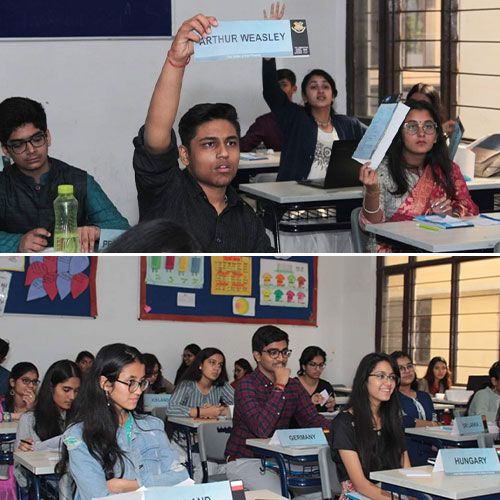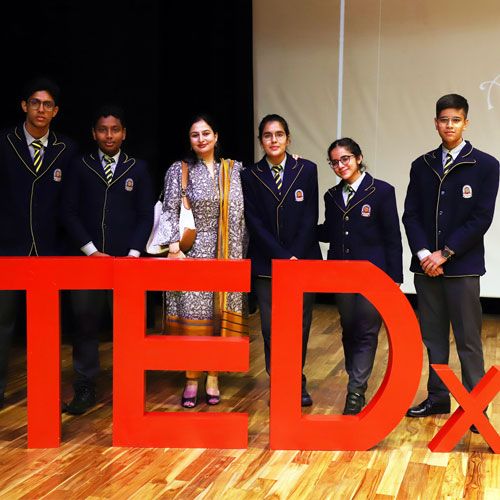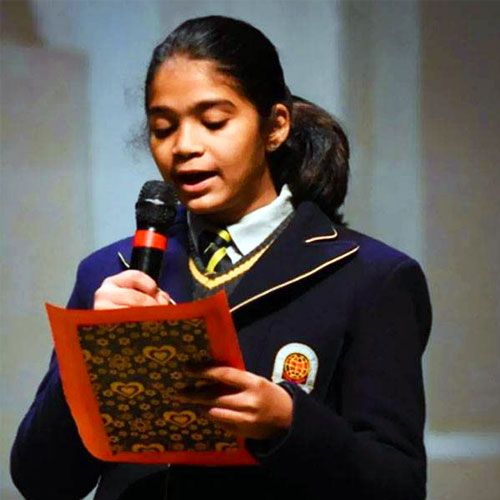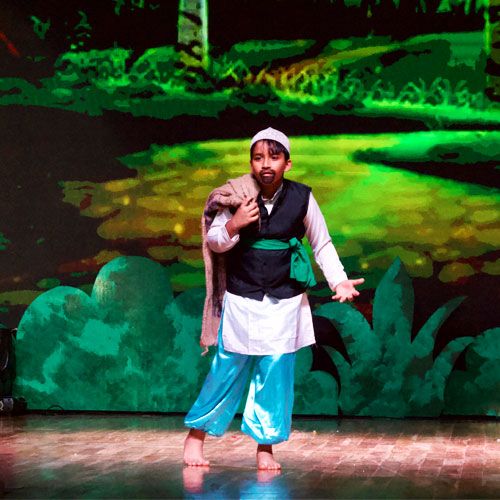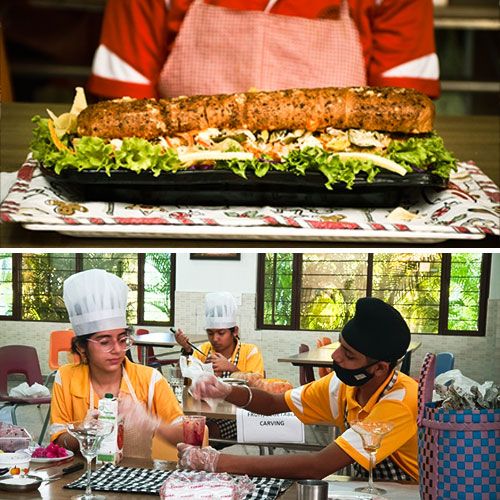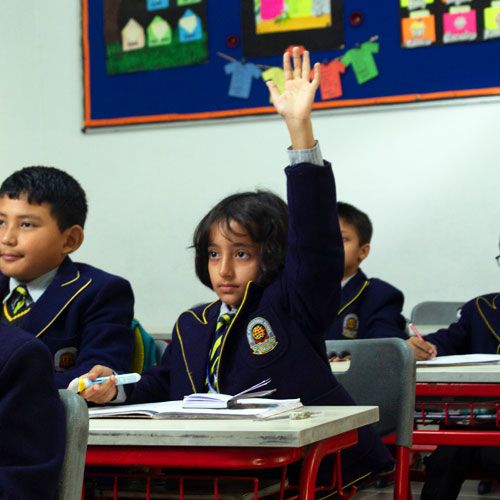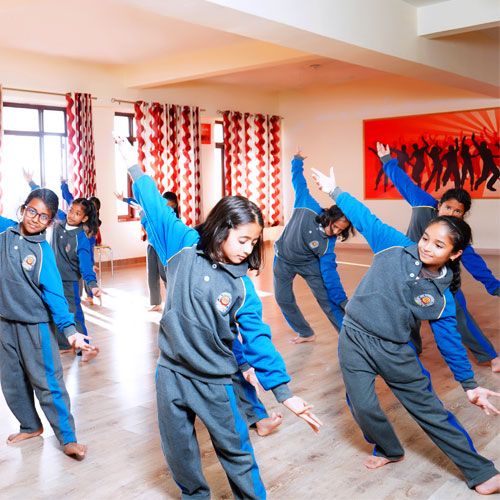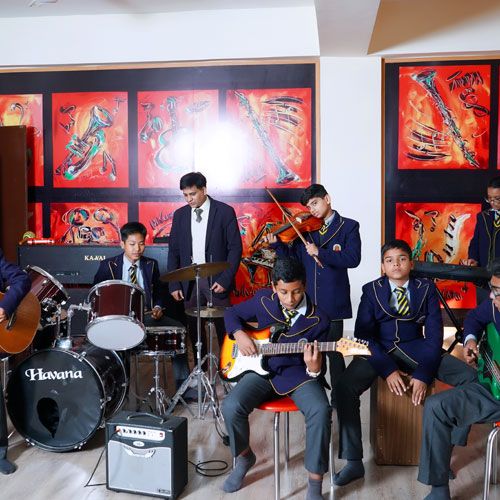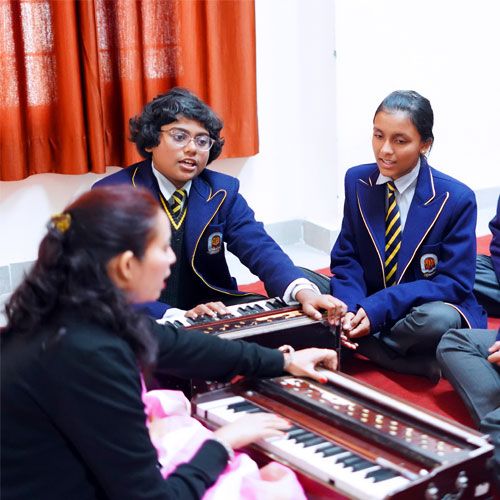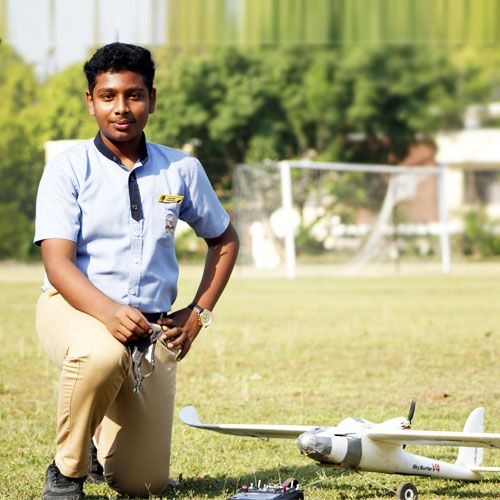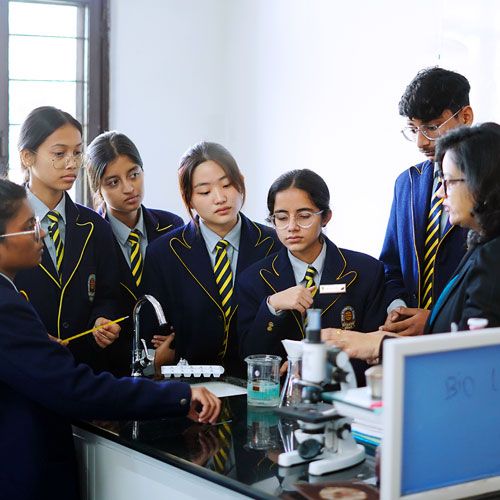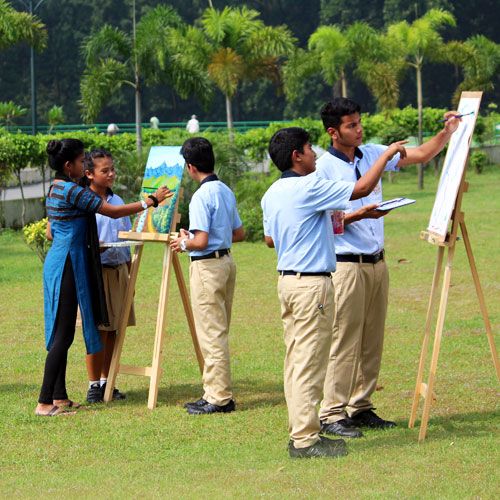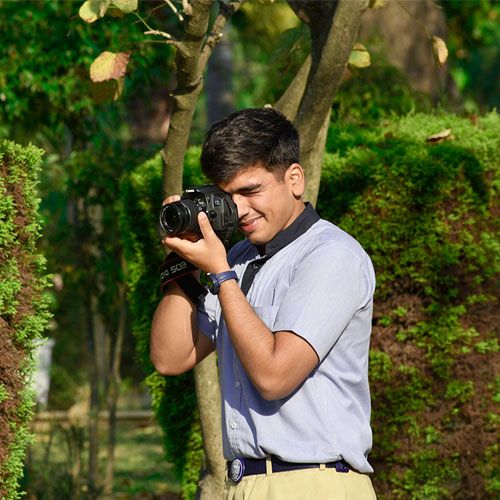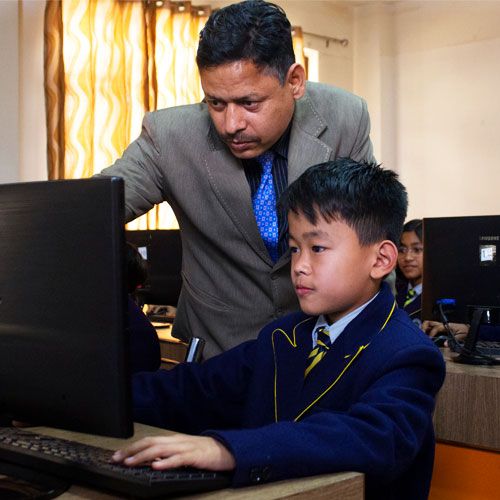
To compliment the academics program, the school offers a wide range of co-curricular activities. All of these are conducted under the able guidance of expert instructors. The following Clubs are being offered presently:
The MUN Club is an experience-sharing platform, wherein relatively experienced MUNers of the club help the others with strategic planning and execution of the same, in a real committee.
The MUN Club has a fairly simple mission – Make Every Delegate the Best Delegate. Model United Nations has become very popular in schools. Students participate in it with pride. The conventional debate is gradually losing to MUN discussions and deliberations. Also known as Model UN or MUN, it is an educational simulation in which students can learn about diplomacy, international relations and the United Nations. At an MUN conference, students work as the representative of a country, organization, or person, and must solve a problem with other delegates from around the world.
MUN teaches participants skills like research, public speaking, debating and writing, in addition to critical thinking, teamwork and leadership. It is meant to engage students and allow them to develop deeper understanding of the current world issues.
The TED-Ed Student Talks Program supports students as they discover, explore and present their big ideas in the form of short, TED-style talks.
How It Works
Informal meetings that encourage discussions are effective. It is important to know one's club members and the kinds of interests they have. Informal Club debates or discussions are the most popular type of Public Speaking Club Activity. Such discussions let people use English in a more natural way than in a classroom.
Public Speaking Club helps to have a new discussion topic for each meeting. This helps keep conversations from being too repetitive. The English faculty creates excitement, encourages club members to learn new vocabulary words and speaking styles and use them.
Drama in some form is found in almost every society, primitive and civilized, and has served a wide variety of functions in the society. Drama Club is designed for students interested in learning more about the aspects of theatre. This includes learning stage craft, working on acting skills, set building, costumes design and makeup. In contemporary drama education, there is no prescribed or definite list of elements of drama. However, these are some of the key elements on which we emphasise and enable the students of our school to learn the art of theatrics and drama.
We at Doon International School strongly believe that cooking is a very important life skill that should be inculcated in children from an early age. It can be started by teaching them how to use basic utensils like pans, pressure cookers, ovens etc. Fireless cooking not only teaches cooking to children but also teaches some valuable skills of life. This enhances children’s creativity, thinking and problem solving skills. With this children improve their knowledge of basic skills like measuring, counting and following instructions.
The quiz club welcomes those who love to test their knowledge and intellect. General Knowledge helps an individual to gain knowledge about the world around them. The quiz club conducts activities to help sharpen the knowledge and skills of the students. The club also helps in updating the knowledge of its students in different sectors like academics, quantitative and qualitative ability, general awareness etc.
Dance club is important for students as dance burns calories, strengthens muscles, improves balance, increases flexibility and gives the heart a good workout. Dance has also been proven to increase cognitive development. Learning, thought, creativity and intelligence don’t just come from the brain alone, but from the entire body. Movement combinations increase memory, order and sequencing skills. Creating dances also increases self-esteem which is very important for learning.
Music is the language of the soul. The school conducts the Music Club with the objective of encouraging musical talent among students. The club has emerged as an important platform for students to showcase their talent of vocal and instrumental music. The club presents musical performances during the Assembly and also on special occasions. By inculcating love for music among students, the school provides them with an opportunity to participate in various competitions and musical programs at different levels.
Indian Classical Music develops our soul and helps our mind grow. It helps to develop linguistic skills, reasoning and spatial intelligence. There are four stages to teach Indian Classical Music: Imitation, Exploration, Improvisation and Composition. It’s important to raise the quality of music teaching as well as develop a culture of learning. The club performs various activities to build aspiration and enthusiasm in students towards learning Indian classical vocal music.
Aero-modelling is the activity involving design, development and flying of small air vehicles. It is a very exciting and interesting way to learn, apply and understand science and engineering principles. Aero-modelling is widely popular as a hobby for those who like adventure, but it also involves skills of engineering, to first design the aero-models and then perform aerobatics. DIS Riverside Campus is happy to introduce Aero-modelling Club, under the guidance of Mr. Amal Gupta, an experienced trainer who has conducted Aero-modelling classes for top schools in Dehradun.
Middle School (Classes VI - VIII)
Senior School (Classes IX - XII)
Robotics is the branch of technology that deals with the design, construction, operation, structural disposition, manufacture and application of robots. The Robotics Club at DIS Riverside Campus is run by The Construkt Learning Solutions Pvt. Limited.
TryfiBox is a brand of CONSTRUKT learning solutions Private Limited which started its journey in the year 2009 and develops novel ways of learning for students. The company is a renowned name in the field of education and is famous for its experiential and practical learning. The TryfiBox Robotics Club for classes 9th to 12th expose students to learn about the different types of Actuators, Gears, Sensors, Controllers, Microcontrollers and Programming. Students would work on real-life applications such as Wired Robot, Mechanical Car, Light Sensor Robot, Smart Home System, Internet of things and many more.
The Innovation Club at DIS Riverside Campus helps to engage students in innovative and creative activities apart from providing opportunities for hands-on activities. The objective of the Innovation Club is to create awareness, educate, nurture and inculcate a culture of innovation amongst students and to enable them to generate new ideas and become more innovative.
The Innovation & Science Club thrives on a collaborative initiative between the students with scientific aptitude and their mentors.
Suggested Activities of the Innovation & Science Club :
Art & Craft is a highly enjoyable Club and forms an integral part of the school curriculum. Art involves an unstructured activity where children can explore and create anything with their imaginations; however, craft involves a structured activity where children create something keeping their goal in mind. Being part of the club, will help the child understand the meaning of his imagination and learn to self-express his vision. The Club helps the child to participate and explore the visual and tactile experience. It enhances the child’s individual craftsmanship, giving them an exposure to various types of craft and art. With all this, they learn life skills and develop their personal, social, moral, spiritual, and creative aspects.
Photography is a universal language. A photo is not just a photo; it is a moment captured that tells many stories without even saying a word. It is the art of capturing perfect moments at the perfect time keeping in mind lighting, shapes, texture, patterns and colours. A perfect photo can be used as a tool that has the ability to give inspiration and motivation for one to be better versions of themselves.
“Learning to write programs stretches your mind, and helps you think better, creates a way of thinking about things that I think is helpful in all domains.”
- Bill Gates
Coding is the language of the future. Now more than ever, children are exposed to digital technology at a tender age. Some children may even be interested in the language behind our technology and there is significant importance in coding and allowing children to explore this world. Coding helps children with communication, creativity, math, writing and confidence.
For young learners, programming helps to gain problem-solving skills. Coding also enhances thinking ability and enables one to think logically, strategically and analytically. Coding an app involves taking an idea, designing the app and testing it. Having children learn coding at a young age prepares them for the future.
